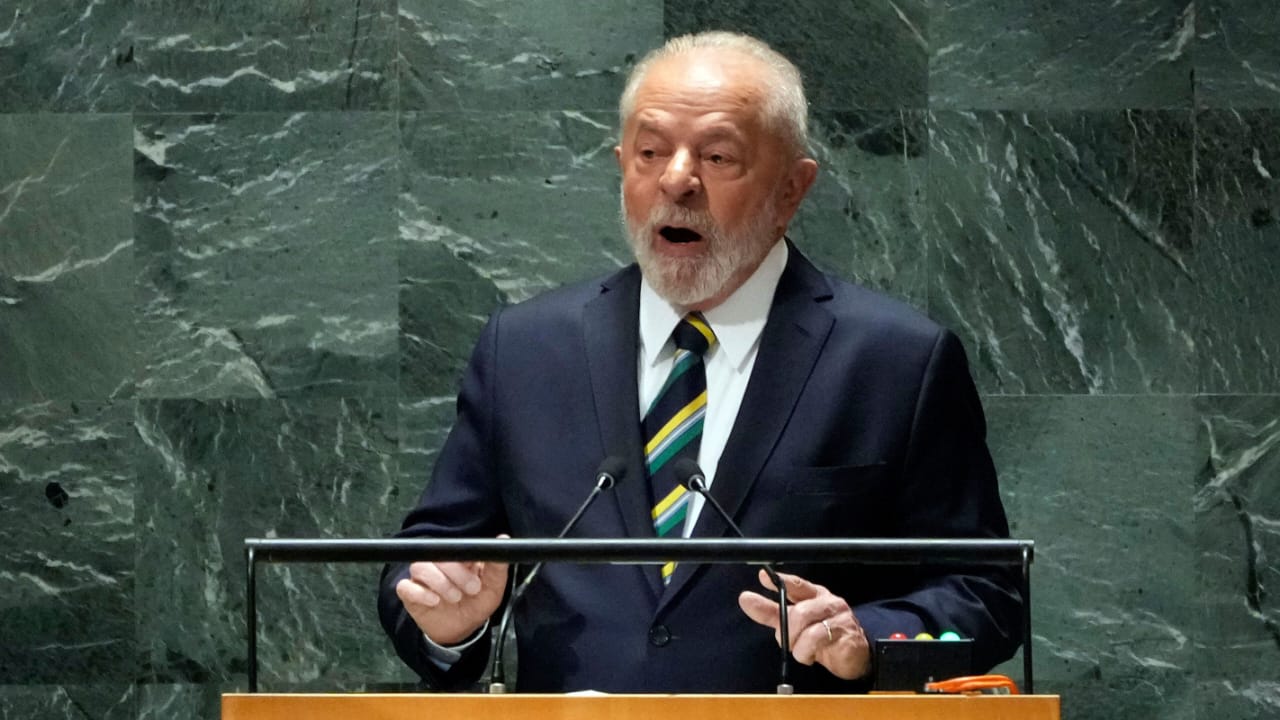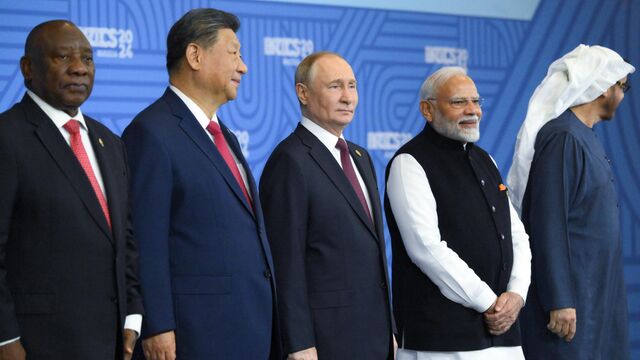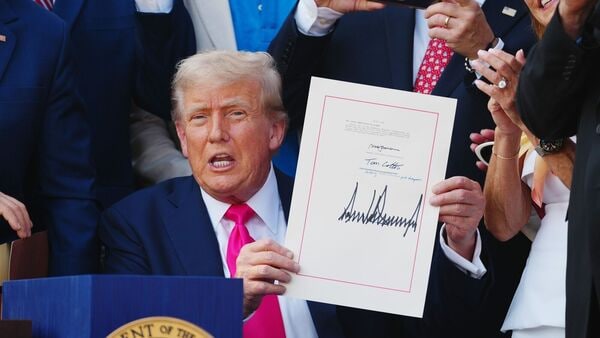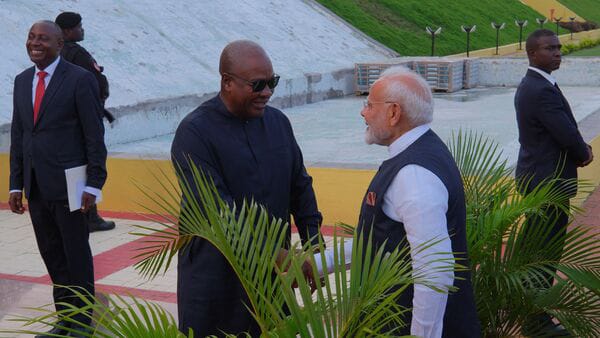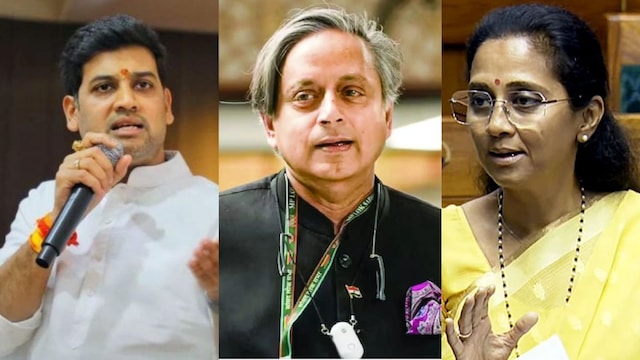
The best news today is that India’s Operation Sindh was more than just a diplomatic effort, it was a strategic message wrapped in a united political front, strengthening the country’s stance against global terrorism. After the loss of lives of Indian soldiers in a horrific terrorist attack in Pahalgam, India is stepping up its diplomatic game by launching this bold campaign. The difference is, it is not just the government, but a group of 59 members of parliament (MPs) taking the campaign global.
India is saying, “Our defense game is over.” This is not just about foreign policy; it is about optics, narrative control and building a global alliance to confront a shared enemy – terrorism. Think of it as the avengers of Indian politics – the BJP, the Congress, the NCP and others – joining forces to put their internal squabbles behind them and move directly to influence world leaders.
The big question now is who is going where, and why does it matter? Let’s take a look back at the atrocities that triggered this high-profile diplomatic mission, starting with the brutal incident that triggered the launch of the operation.
All the points in this post
Background to Operation Sindoor
The tragedy in Pahalgam, Jammu and Kashmir, saw a deadly ambush where a bus carrying Indian soldiers back from leave was turned into a bloodbath. The cowardly attack left five soldiers dead, sending shockwaves not just across India but across the globe.
This was not just another attack – it was a wake-up call, a stark reminder that terrorism still thrives across borders. It also came at a time when the geopolitical climate is highly sensitive – India’s neighbours are the epicentre of conflicting alliances and insurgent networks.
This is where Operation Sindoor comes into play. Symbolically named after the red vermilion worn as a symbol of sacrifice and valor, the initiative is India’s way of stepping beyond military retaliation and into the diplomatic battlefield. Let the world hear India’s pain, see its unity and support the fight against terrorism. Rather than relying entirely on the Ministry of External Affairs, Operation Sindhu selects people’s representatives – elected MPs – to lead discussions in key countries.
Forming an all-party delegation
So, how did we get from parliamentary debates to boarding a plane abroad? Well, the Indian government has realised that to garner sympathy and support abroad, it needs to demonstrate unity at home. Enter, the all-party delegation.
Prime Minister Narendra Modi, backed by External Affairs Minister S. Jaishankar, has assembled a roster of experienced MPs and persuasive speakers from across political parties. The message was clear – it’s not about party lines, it’s about national security and international solidarity.
Members of the BJP, Congress, Trinamool Congress, Nationalist Congress Party, and several regional parties were included in the team. They were not chosen at random. Each brings experience in diplomacy, a strong speaking presence, or strategic cultural/religious ties to the country they are being sent to.
These delegations are not just performing ceremonial duties, they are said to be participating in town halls, interacting with think tanks, meeting foreign ministers, and briefing intelligence and defense experts. This is not diplomacy behind closed doors — this is diplomacy in the open field.
Key delegation leaders and their assigned countries
This is where the spotlight turns to the real players in the campaign.
Thiruvananthapuram Congress MP Shashi Tharoor has been selected to lead the delegation to the US. Why, simple—Tharoor is an articulate speaker, former UN diplomat and intellectual powerhouse at global forums. His international profile and understanding of foreign policy make him a natural choice. His mandate? Aggressively promote India’s narrative in key American institutions – Capitol Hill, the State Department and think tanks worldwide.
Next up, Supriya Sule, a senior leader of the nationalist Congress Party, is heading to Qatar. The assignment is significant given India’s large Indian diaspora and strong diplomatic ties with the Gulf countries. Sule’s calm demeanor, diplomatic tone and cultural understanding make him a suitable envoy.
Other important names include K. Annamalai (BJP) Australia, leveraging relations with the Indian diaspora and strategic partnerships. Next up is Derek O’Brien (TMC) on a visit to Germany, focusing on human rights diplomacy and counter-narrative building. Next up is Manish Tewari (Congress) on a visit to Canada, a particularly important venue given the recent tensions over Khalistani extremism.
The delegation also includes Muslim MPs who are working to engage with Islamic countries, reinforce India’s pluralistic message and dispel any misinformation about religious persecution within the country. This diversity of ideological, regional and religious representation adds authenticity and solidity to India’s position on the world stage.
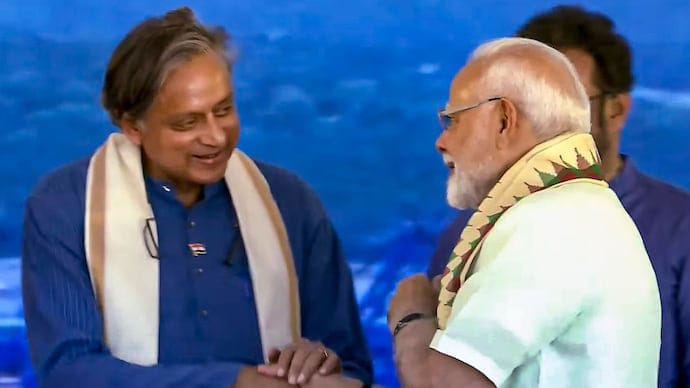
The purpose of the diplomatic campaign
Let’s not hide it – this campaign has ulterior motives and India is playing a calculated game. The primary objective is to expose cross-border terrorism, particularly Pakistan’s involvement in harbouring and activating terrorist networks targeting Indian civilians and military personnel. But this is just the tip of the iceberg. Here is a breakdown of the main objectives at a glance: Unite global opinion against terrorism, India wants to push the world towards a common definition and condemnation of terrorism. No more double standards. No more “good terrorist vs bad terrorist” logic.
Leverage diaspora influence: In countries like the US, UK, UAE and Canada, the Indian diaspora wields significant socio-political influence. These delegations are reaching out to community leaders to support and strengthen India’s global narrative. Pre-emptive narrative control, this is also a pre-emptive PR move. By telling India’s side of the story first, these MPs are ensuring that the international media does not distort the narrative in favour of the adversary.
Economic and strategic ties, it is also about business and strategy. Terrorism affects investment. India is subtly strengthening its image as a safe, resilient democracy that takes threats seriously and responds intelligently. Reputation management in Muslim countries, with some hostile campaigns branding India as anti-Muslim, particularly in countries like Qatar, Egypt and Turkey, aims to bridge that perception gap.
Detailed list of delegation members and their destinations
Operation Sindhu is not a symbolic move. It is a full-fledged diplomatic operation in which lawmakers from different parties participate. The Indian government has brought together a total of 59 members of parliament, each of whom has been assigned to a specific country or group of nations to lead India’s diplomatic campaign against terrorism.
Below is a comprehensive list of the main delegates, their political affiliations and the countries they are scheduled to visit
| MP Name | Party | Country Assigned |
|---|---|---|
| Shashi Tharoor | Congress | United States |
| Supriya Sule | NCP | Qatar |
| K. Annamalai | BJP | Australia |
| Derek O’Brien | TMC | Germany |
| Manish Tewari | Congress | Canada |
| Meenakshi Lekhi | BJP | France |
| Asaduddin Owaisi | AIMIM | UAE |
| Sushil Kumar Modi | BJP | Israel |
| Hibi Eden | Congress | Greece |
| Imtiaz Jaleel | AIMIM | Oman |
| Priyanka Chaturvedi | Shiv Sena (UBT) | Turkey |
| Mahua Moitra | TMC | Netherlands |
| Raghav Chadha | AAP | Belgium |
Each of these MPs will meet government officials, think tanks, diaspora leaders and human rights organisations in their respective countries. What makes this even more strategic is the careful matching of MPs to countries where they have cultural resonance, prior diplomatic experience, or significant diaspora engagement.
For example, Owaisi’s assignment in the UAE is designed to strengthen India-Muslim world dialogue. In the US, Tharoor is expected to make compelling presentations using his UN experience and knowledge of foreign affairs. Chaturvedi and Maitra have been selected for Europe where India seeks to counter potentially Western liberal narratives on human rights through solid data and grassroots engagement.
The delegation is not limited to delivering speeches. Each MP will prepare a detailed report on their meetings, public reactions and strategic actions – feeding into India’s larger foreign policy realignment post-Pahalgam.
International community response
So far, India’s unprecedented diplomatic strategy has caught the attention of world leaders. Countries like Israel, Japan, France and Russia have come forward to support India’s right to self-defense and fight all forms of terrorism. The Israeli prime minister has publicly condemned the Pahalgam attack and has further strengthened the India-Israel strategic partnership. Israel has supported India’s decision to mobilize global support, offering intelligence cooperation and a joint counter-terrorism strategy.
France and Japan have echoed their strong condemnation, insisting that terrorism cannot be justified under any circumstances. These countries are already India’s strategic defense partners, and Operation Sindhu only reinforces India’s perception of itself as a responsible, active player in global security. The United States, where Tharoor has already held closed-door briefings, has expressed concern about the resurgence of terrorist threats in South Asia. While being diplomatic, US officials have acknowledged India’s security concerns and committed to “close cooperation”.
Traditionally close ally Russia has been quick to support India’s right to self-defence and condemns Pakistan’s continued provision of sanctuary to terrorist organisations. Moscow has also said that global terrorism should be a collective concern, not just bilateral. In Middle Eastern countries like Qatar, Oman and the UAE, the response is warranted with caution. These countries have large Indian diaspora populations and strong economic ties, so their governments are welcoming the Indian delegation with measured optimism.
India’s diplomatic move has also served another purpose – it has created peer pressure. Countries that have often maintained neutral or ambiguous positions on cross-border terrorism are now being gently pressured to choose a side. Silence in the face of India’s all-out campaign is increasingly seen as complicity.

Domestic political dynamics and debate
Of course, no major Indian initiative is complete without a dose of political drama. And Operation Sindoor, despite its noble intentions, has stirred a pot or two in the country. The biggest stir has been the Congress-BJP tussle over the appointment of Shashi Tharoor to lead the high-profile US leg of the delegation. BJP leaders have questioned why a Congress MP, whom they often accuse of being “soft” on Pakistan, was chosen for such a crucial role.
The government counters that Tharoor’s international credibility, eloquence and deep roots in global diplomacy make him an asset regardless of political affiliation. The argument has been that influence should be prioritised over party loyalty. This has not stopped the war of words. Congress leaders have hit back at the BJP, accusing it of politicising the bipartisan initiative.
Another controversy has arisen over the inclusion of Asaduddin Owaisi in the UAE-bound team. Critics have argued that sending a leader who is often critical of government policies domestically could damage India’s narrative abroad. Meanwhile, regional parties like TMC, Shiv Sena and AAP have also used their responsibilities to assert their international relevance. For example, Mahua Maitra’s trip to the Netherlands is being seen as an attempt to further enhance her global profile amid internal investigations.
Essentially, Operation Sindhu has not only brought parties together – it has also created a new arena for political posturing and power play. It is diplomacy mixed with domestic political spice, and everyone wants their share of the pie.
Impact on India’s Foreign Policy
Operation Indus marks a fundamental shift in the way India conducts its diplomacy. For decades, foreign policy was seen as the exclusive domain of the Ministry of External Affairs. But now, by sending 59 MPs representing multiple parties abroad, India is signaling a new era of parliamentary diplomacy.
This multi-party engagement has done two major things, it has strengthened India’s voice internationally. By having elected representatives from across the continent speak, it has sent a message that India’s concerns are not just official but national. It has demonstrated unity in grief and determination in response.
It has added a human touch to diplomacy. Diplomats are often seen as bureaucrats, but politicians appear as the voice of the people. These MPs can speak emotionally, tell stories from the ground, and present terrorism as a personal tragedy, not just a policy one. This hurts even more.
This approach is also consistent with India’s broader foreign policy goals, especially under the current administration. Strategic autonomy, India seeks to maintain its independence in global alignment. India is reviving its autonomy by presenting its own narrative on terrorism without waiting for a UN statement or US endorsement.
Multipolar engagement, India is further cementing its belief in multipolarity by sending delegations to over 30 countries—engaging not just Western countries but also the Middle East, the Asia-Pacific region, and Eurasia. Diaspora diplomacy, The campaign continues to build on the Modi-era strategy of using the Indian diaspora as soft power ambassadors. From Silicon Valley to Dubai, MPs are reaching out to influential communities to promote India’s position.
If successful, Operation Indus could become a template for future global campaigns—be it on climate change, trade, or health diplomacy. It is also forcing other countries to rethink how they present domestic issues internationally. India may be pioneering a new brand of people-driven foreign policy.
Media Coverage and Public Perception
Back home, Operation Sindoor has created a media frenzy. It is not every day that you see fierce MPs who normally debate on TV debates suddenly acting as global diplomats. And this novelty has made the campaign a prime-time spectacle.
The Indian media, both print and digital, is closely monitoring the itinerary of each MP. Photos of Tharoor at the US Capitol, Supriya Sulle attending a cultural event in Qatar, or Indian students addressing the nation in Sydney have gone viral. These are not just opportunities for coverage – they are becoming symbols of political maturity.
TV debates are also surprisingly partisan. Yes, there has been some criticism – especially from the usual detractors calling it “PR over policy” – but overall, the initiative is being hailed as a rare moment of political cooperation.
Social media, predictably, is a mixed bag. Hashtags like #OpSindoor, #IndiaFightsTerror, and #UnityAgainstTerror have trended within hours. Instagram reels and YouTube shorts of the delegation’s speeches are gaining views, especially among politically aware young people. However, trolls from both the left and right have not spared their own leaders, accusing them of either being arrogant or “too soft.”
Internationally, the coverage has been largely positive. Major media outlets such as The Guardian, The New York Times, Al Jazeera, and The Straits Times have published stories acknowledging India’s strategic use of bilateral diplomacy. The editorials noted that India’s internal political disagreements could not prevent it from speaking with one voice against global terrorism.
Challenges facing the delegation
But not everything is going smoothly. Behind the headlines and hashtags, the delegations are facing serious challenges—both logistical and political. Diplomatic skepticism, some countries are wary. They have seen other countries politicize terror in the past. They need to be convinced that India’s concerns are legitimate and not aimed at settling regional scores. MPs must walk a tough line—remain firm without making accusatory noises.
Internal party dynamics, while unity is the public face, there are conflicts behind closed doors. MPs from rival parties sometimes disagree on tone and content. Some want to aggressively highlight Pakistan’s role, while others insist on keeping the conversation on global terrorism broader.
Language and cultural barriers, not all MPs are experienced diplomats. Some face language barriers or struggle with local protocols, especially in non-English speaking countries. This has led to a reliance on embassy staff and interpreters, which is slowing down communication.
In the political arena, some delegations are dominated by star MPs, which is causing resentment among others. For example, in the US, Tharoor’s charisma has overshadowed the contributions of other MPs from the same party, creating a perception of imbalance.
The limited time frame, with many visits being short – just 2 to 3 days – makes it difficult to engage deeply. MPs have to squeeze meetings, speeches and media events into a tight schedule, which reduces the depth of dialogue.
Despite these problems, MPs are adapting quickly. Daily coordination calls with MEA officials help fine-tune the process. These challenges highlight the need for better training and preparation for MPs on future diplomatic missions. After all, global storytelling requires not only passion but also precision.
Success metrics and expected outcomes
How do you measure success in this type of mission? It’s not like a cricket match where you have a clear scoreboard. But the Indian government and analysts will be closely monitoring several metrics. Public statements from host countries, the most immediate sign of success, are official statements. If the host countries express clear support for India’s position, especially naming cross-border terrorism, then that’s a win.
Policy changes or intelligence cooperation, beyond words, India is hoping for increased intelligence-sharing agreements, joint counter-terrorism exercises, and policy changes that reflect support for India’s security concerns. Diaspora engagement, a successful campaign will see stronger engagement from the diaspora community – either through lobbying efforts, public campaigns, or even political influence in their host countries.
Media narrative change, a key goal is to tilt the narrative in the global media. If the articles, sub-editorials and editorials start reflecting India’s counter-terrorism framework, it is indicative of successful perception management. A long-term diplomatic lift, Operation Sindoor should deepen bilateral relations. Countries that respond positively could be given priority in future trade, defence or cultural partnerships.
Simply put, the success of the mission is not just in the meetings – it is in the sharing of minds. If world capitals start seeing India as a decisive, united democracy that will not back down from terrorism, then the mission will have achieved its objective.
The future of India’s counter-terrorism diplomacy
Operation Sindoor could be a blueprint for India’s next generation of diplomacy. Traditionally, foreign policy has been conducted in the realm of high-level diplomacy – ministers, ambassadors and closed-door discussions. But this initiative brings a people-powered, political-diplomatic hybrid model that could redefine India’s international engagement strategies in the future.
The institutionalization of parliamentary diplomacy, if successful, could make this all-party model a permanent feature. India could create a standing committee or rapid-response parliamentary team dedicated to dealing with international crises—something few democracies have. With real-time crisis outreach, terrorism, and global crises unpredictable, having trained MPs as quasi-diplomats creates opportunities for rapid deployment. Instead of waiting for bureaucratic channels, India could immediately send lawmakers abroad to provide context, defend its position, or mitigate international influence.
The same model could be followed for broader issues beyond terrorism, climate change, cybersecurity, or misinformation—other major issues. Imagine MPs conducting missions on the Sustainable Development Goals or AI ethics, representing Indian values on emerging global platforms. Building soft power through cultural exchanges, with MPs from diverse backgrounds, languages, and religious communities, future delegations could focus on building cultural empathy, showcasing India’s diversity, and breaking down stereotypes that fuel anti-India narratives abroad.
Building global legislative alliances: When MPs meet their counterparts abroad, they lay the foundation for long-term parliamentary partnerships. These could evolve into legislative exchanges, co-sponsored motions in foreign parliaments, and knowledge-sharing on policy development. The biggest takeaway, Operation Sindhu is not just about terrorism—it’s about elevating India’s voice globally, not through one government, but through a united front of democracies. This is the dawn of Diplomacy 2.0, where foreign policy is no longer confined to diplomats but is driven by democracy.
Lessons learned from Operation Sindoor outreach
Every operation, no matter how successful, leaves behind opportunities for learning, insight and improvement. Operation Sindoor is no different. This operation, in a way, is as much about results as it is about self-criticism. Unity on the world stage Trump’s ideal, for once, Indian politicians put aside internal animosities and cooperated. This unity, even if temporary, had enormous symbolic value. It was a reminder that some things – like national security – must rise above partisan politics.
The world responds to clarity and credibility, with parliamentarians who speak clearly and back up their statements with facts enjoying better international acceptance. This highlights the importance of preparation, evidence-based dialogue and staying away from emotional rhetoric. Representation is important, with minority community representatives, women MPs and members of regional parties helping to strengthen India’s democratic pluralism. Their presence has helped India combat campaigns that suppress internal dissent or diversity.
Training is important, and while most MPs performed admirably, some struggled with diplomatic nuance. This points to the need for a basic diplomatic training module for future political envoys – focusing on cross-cultural communication, media management and negotiation techniques. Vision is as powerful as policy, social media moments, heartfelt speeches and symbolic visits – such as laying wreaths at terrorist memorials – have made lasting impacts. In today’s world, perceptions shape policy outcomes more than ever before.
The End
Operation Sindhu is not just a response to tragedy – it is a diplomatic masterstroke. In the wake of a brutal terrorist attack, India did not just mourn – it came together. And it marched across the globe with an all-party political army, carrying a message that terrorism is terrorism, no matter where it occurs or who supports it.
By engaging 59 MPs from every major political party, India has demonstrated not only its unity but also its maturity. It has stepped out of the traditional diplomat-only framework and empowered MPs to be the voice of the nation globally.
From Washington to Doha, from Sydney to Brussels, Indian lawmakers are working to ensure that the world not only hears India but also feels its pain, understands its position and expresses solidarity. The operation may not change foreign policy overnight, but it has changed the narrative – and in geopolitics, half the battle has been won.
Operation Sindhu will serve as a unique test case in international relations. It proves that in the face of terror, a democracy’s greatest strength is not just its military or its economy – but its ability to stand united, speak loudly, and act intelligently. What do you think? Leave a nice comment. Stay well. See you tomorrow with new news.


